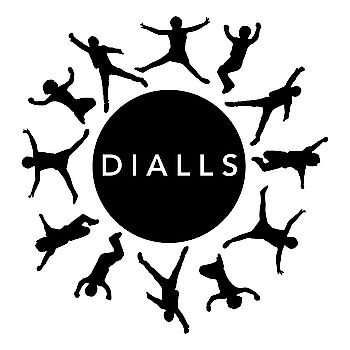Under the leadership of researchers from Humboldt-Universität zu Berlin, scientists and teachers from 9 countries have developed and tested open access teaching materials to promote the cultural competence of students in Europe. ECDF professor Elisabeth Mayweg (HU Berlin), head of the working group Digital Knowledge Management in Teaching and Learning at the Institute of Educational Sciences, is responsible for the project at HU.
A variety of cultures come together in Europe. But are children and young people already aware of this? How can they develop intercultural skills while still at school? These are questions that European scientists are investigating together in the EU project "DIALLS", which stands for "DIalogue and Argumentation for cultural Literacy Learning in Schools". After researchers and teachers in four different countries have designed a "program for promoting cultural literacy" since March 2018, psychologists from Humboldt-Universität zu Berlin developed the materials further in their sub-project so that they can be used in the long term by teachers from all over Europe - flexibly and freely accessible.
This phase of the project took place in four countries simultaneously - Portugal, Israel, the United Kingdom and Germany.
From September 2020 to February 2021, over 100 primary and secondary teachers tested the materials with their students and provided feedback. The teachers used the DIALLS materials even under the difficult conditions of the pandemic and were even able to use them to design distance learning lessons. "In addition to the scientifically sound development of an instructional program, it is also important that the elaborated materials can be used in the long term by many teachers for meaningful lesson design. They must also be able to respond flexibly to new challenges," emphasizes Dr. Maria Zimmermann, a psychologist at the HU and ECDF.
DIALLS should also be exciting for the students: Specially selected films tailored to each age group serve as digital teaching materials. The students should develop the ability to consider different perspectives, to put themselves in the shoes of others and to learn to argue. In doing so, the program can also be used to cooperate with other schools (on a national and international level) (e.g., via digital-based lessons on how school classes can work together). In addition to discussions, the creation of small art projects are also part of a DIALLS lesson. A selection of such art projects can be found on the DIALLS website.
The three-year DIALLS project ran under the direction of the University of Cambridge. From Germany, two universities are involved at once, the Humboldt University of Berlin and the Westphalian University of Münster. The Horizon 2020 project was initiated and funded by the European Union. Experts from the fields of cultural studies, political education, pedagogy and psychology, as well as specialists in teacher training and literacy were also involved.
Interested researchers can find open access communication data on the project website; Interested teachers and trainers can find the DIALLS materials and use them for their lessons.

